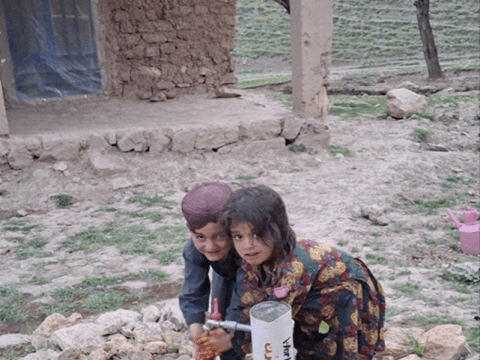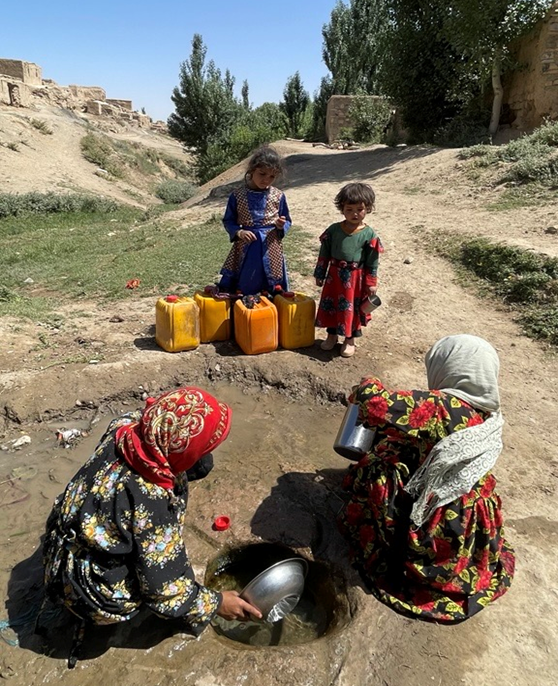How clean water ended daily struggle for these two villagers

The DAWAM project has brought clean water to Riza Gol and Jan Aga in their villages, transforming their lives and creating lasting change. These are their stories.
Riza Gol: From Fear and Struggle to Peace of Mind
In Haji Ahmed village, collecting water used to mean long days and constant worry. For years, I used to spend more than an hour on a donkey to reach the river and fetch water for our daily use.
The water I collected was muddy and unsafe. It was all I had to cook with, to clean with, and to care for my daughter Rozi, who lives with a disability.
Our village had no proper toilets, no handwashing stations, and not enough understanding of hygiene. Illness was common, and the summer months brought sharp water shortages. For me, life was a daily balancing act between keeping my family safe and managing the heavy responsibility of caring for Rozi.
The UK-funded DAWAM project changed that. Pipes were laid, taps appeared outside our homes, and the local health centre (run by another organisation) was fitted with toilets, waste management, and clean water. Awareness sessions on hygiene and dignity gave us the knowledge to protect our families.
The difference in my life is clear. I no longer need to take the long journey to the river. Clean water is right outside my door. I can give Rozi the care she needs without fear of sickness.
The health centre is now a place I trust, and around me, the whole community is learning new habits, shifting toward a culture of health.
Today, when you walk beside me, you no longer see the strain of endless journeys, but the quiet strength of a mother who finally has the tools to protect her daughter and the time to breathe.
This is an imaginative retelling of Riza Gol's story.

Jan Aga: Turning Hardship into Hope
In Tahiri Haji Saleh, a boy named Jan Aga once started each morning with a two-hour trek by donkey to fetch water. Under the heat of the sun, the path was long, and the water he brought home was drawn from open sources shared with animals. It was often dirty, and never enough.
The journey left Jan Aga drained. His clothes stayed unwashed, hygiene was a constant challenge, and his energy for studying was almost gone before the day even began.
The DAWAM project turned this around. A water network was built, bringing safe water directly into the village. No more long treks, no more unsafe sources.
The change can be seen in Jan Aga. With a bright smile and a bag of books over his shoulder, he explained simply:
“Why shouldn’t I be happy? I no longer have to travel long distances in the hot weather to bring water! Now we have a standpost right at our house where we can easily collect water.”
He went on: “I can wash my body and clothes every day and look at me—I feel smart and fresh in my clean clothes. Now, I can go to school and learn without worrying. I want to become an engineer in the future and bring positive change to the lives of others.”
For Jan Aga, clean water means more than convenience. It's given him time, self-respect, and the freedom to look ahead with hope.
Riza and Jan Aga have different stories, but the same shared outcome. Clean water changes everything: it frees time, restores dignity, and opens space for children and families to live healthier, more hopeful lives.